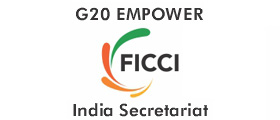After Sanjeevani Shinde lost her doctor husband in an accident in 2011, she rarely stepped out of her home.
She was grieving but also prevailing social norms that discriminate against widows, including not being able to take part in auspicious events such as marriages and other celebrations, kept her confined at home.
But things changed – a social transformation was sweeping western and northern Maharashtra to abolish such discriminations and brought Sanjeevani out of her home. She started offering private coaching to children in her native Sonnewadi village in Osmanabad’s drought-prone Bhoom Tehsil to help them crack the entrance examination for Navoday Vidyalayas and higher education institutions. Thus began her small enterprise of tuition classes.
Today, Sanjeevani is part of a growing network of Self Help Groups in Sonnewadi and other villages in this part, a federation that runs individual and collective income-generation enterprises.
What’s more, the village Panchayat passed a resolution some time back that single women, especially widows like Sanjeevani, cannot not be kept away from celebratory events.
In the last few years, for a monthly fee, Sanjeevani’s classes have helped several students from the village to enter higher education institutions.
If Sanjeevani is running an individual enterprise of tuitions, tens of other women from this and neighbouring villages are engaged in a slew of other activities – from dairy to poultry to running homestay and tiffin services for students studying in the local pharmacy college, to processing of milk, vegetables and other agriculture commodities.
Sonnewadi also houses a hand-glove manufacturing unit – run by an all-women group.
One group makes clay idols of different deities and sell those in the local and distant temples. Several groups run the catering and wedding ‘bichayat’ services. Many of these Self Help Groups rear cattle and make ‘Khoa’, the solid condensed milk that is used for making Indian sweets, specifically, the ‘pedha’, a local delicacy.
A broader movement is also taking shape in Osmanabad district’s drought-prone Bhoom block where efforts are ongoing to transition women members from self-help groups to productive small enterprises – from self-help to helping others.
Over 3,500 Self Help Groups, with nearly 35,000 women members, spread across 285 villages in this region, are working on new livelihood sources for women but are also raising awareness about social ills such as dowry, gender discrimination, intimate partner violence and alcoholism among men.
“What’s remarkable about these groups is their engagement in diverse non-competing activities,” says circle agriculture officer of Bhoom, Nilesh Raykar. “Everyone has their own space.”
“In a way, this is a natural progression – the SHGs turning into productive enterprises than merely running thrift funds,” says Osmanabad collector Kaustubh Diwegaonkar.
Until a decade ago, most of these women would migrate to work as cane cutters at sugar factories in the neighbouring districts of western Maharashtra in low paid, labour intensive jobs. Today, they are working for themselves and others. They have become the faces of change in this region.
 |
 |
 |
 |
These stories of women-led development have been compiled by UN Women India. All copyrights to the stories and images are held by UN Women India Country Office dated December 2022. |

